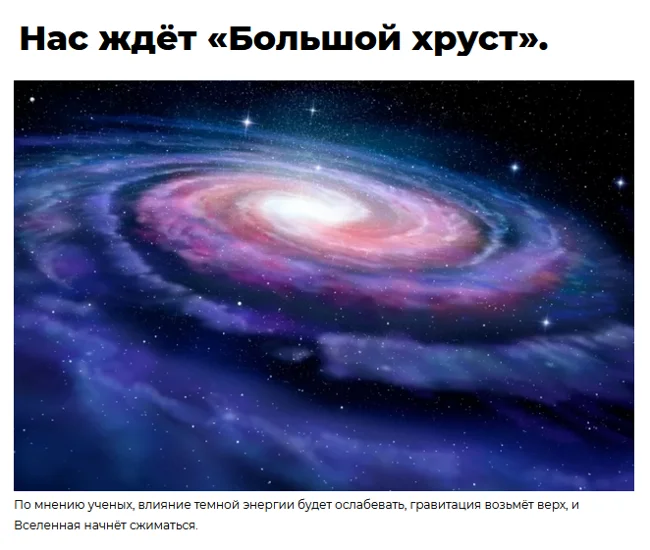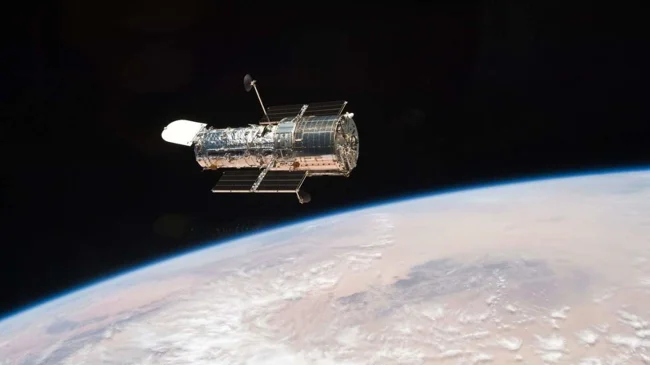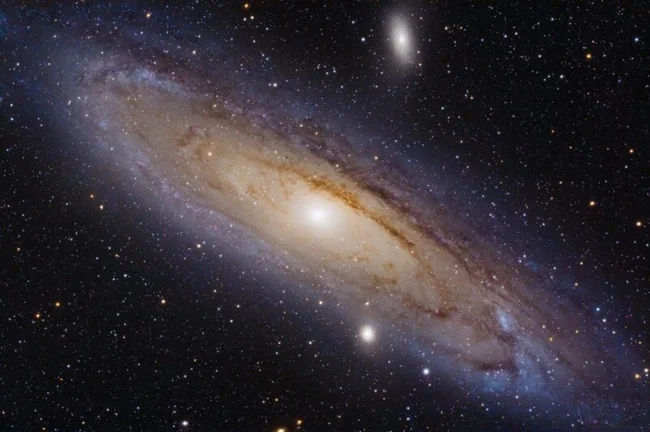Recent research in cosmology challenges previous predictions about the fate of the Universe. If it was previously believed that it would expand for tens of billions of years, new data points to a different scenario.
Expansion is a temporary process. It is claimed that it will be followed by the opposite - cosmic compression, or the so-called Big Crunch. This will be the end of our Universe.
A new cycle will begin... 
An international group of scientists analyzed the latest observations of the large-scale structure of the Universe, conducted with the help of the latest telescopes, and built an alternative cosmological model. It showed a possible weakening of dark energy. 
Hubble Telescope
Previously, the scientific community had three scenarios for the development of the Universe: "heat death" as an infinite expansion and cooling to absolute zero, "Big Rip", in which dark energy tears apart all material structures, and "Big Crunch" - a reverse collapse into the so-called singularity.
The first option (the "heat death" theory) was considered the most likely: the Universe will expand further and further until it cools down.
What awaited it in such an immeasurably distant future?
First of all, in 10^14 years, all the stars will "cool down" after exhausting their nuclear fuel. An era will come when galaxies will cease to exist. Only massive black holes will remain.
And of the stars, only cold white dwarfs will remain. The distances between stars will exceed billions of parsecs. What's next? The outstanding physicist and theorist Hawking showed that black holes are not "eternal formations." They "evaporate," emitting electromagnetic waves. For example, a black hole with a mass equal to 10 solar masses will "evaporate" in 10^67 years, emitting radio waves about 30 km long. Ultimately, the Universe will turn into a collection of scattering ultra-long-wave quanta, as well as low-energy neutrinos. 
However, new data has emerged that concerns the "behavior" of dark energy - a mysterious force accelerating the expansion of space. And they force researchers to seriously consider the third scenario as the most likely. The influence of dark energy will weaken, gravity will prevail, and the Universe will begin to contract. If the Universe begins to contract, then nothing will stop this process. In this case, the Universe will repeat history "in reverse order".
The entire "expansion - stop - contraction" cycle should take about 100 billion years.
Will the Universe begin a new expansion cycle after its compression to a point? Will the new cycles be similar to ours, in which we live? There are no answers...
Should we be concerned? After all, our native Sun will go out by that time anyway: in 5-7 billion years it will turn into a "white dwarf". But even before that, our Milky Way galaxy will collide with the Andromeda Nebula, and what this will lead to is unknown. Some say that both galaxies will fly through each other and then merge, but the stars will survive. Others suggest that during the collision, the Solar System will be completely thrown out of the new galaxy and will begin to wander the Universe on its own. 
Andromeda Galaxy. M31.
Of course, it is too early to draw final conclusions about what fate is in store for our Universe. After all, this is only one of the theories. 
14 comments
Add your comment
You might be interested in:






























